January 17, 2024
Efficient Home Heating: Tips and Tricks for Colorado Winters
As Colorado homeowners face winter, keeping your home warm and cozy becomes a top priority. We at Applewood, your local, family-owned home services company, are dedicated to helping you navigate the chilly months with energy efficient heating solutions. Whether you’re using a furnace, boiler or another heating system, we’ve got some tried and true advice to help you stay warm without breaking the bank.
Understanding Your Heating System
Before diving into efficiency tips, let’s understand the different types of heating systems that are common in Denver area homes. Knowing your system type is the first step towards optimizing its performance.
Furnace
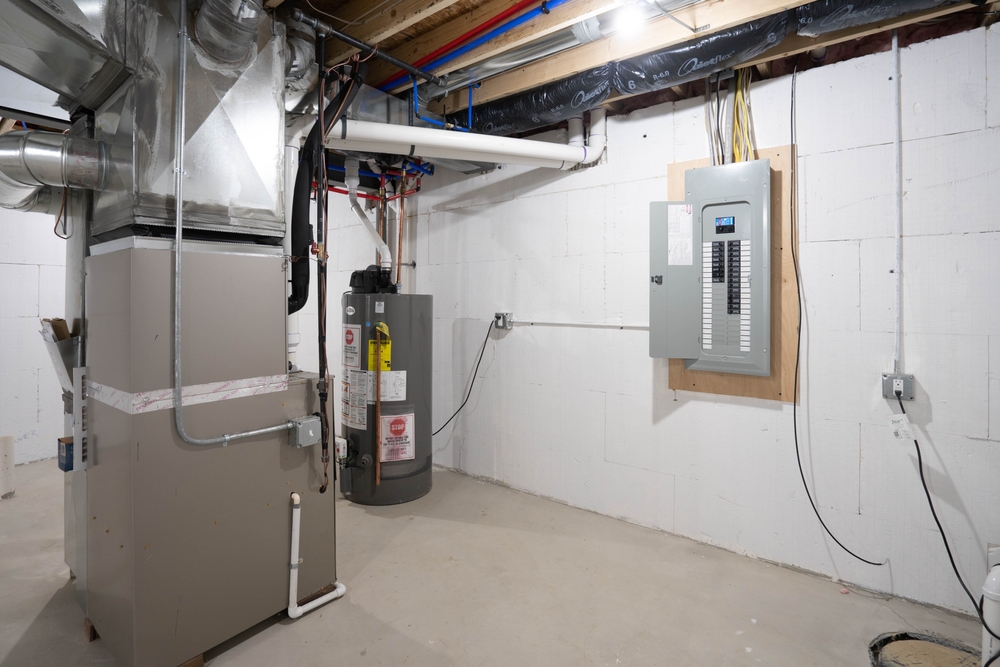
- How it Works: Furnaces generate heat by burning fuel (usually natural gas, propane, or oil) and distributing warm air through ductwork with the help of a blower.
- Identification: Look for a large, box-like unit typically located in basements, closets, or attics. Furnaces often have visible ductwork and a vent pipe or chimney for exhaust.
- Key Indicator: If your home has vents in the floors or walls that blow warm air, you likely have a furnace.
Boiler
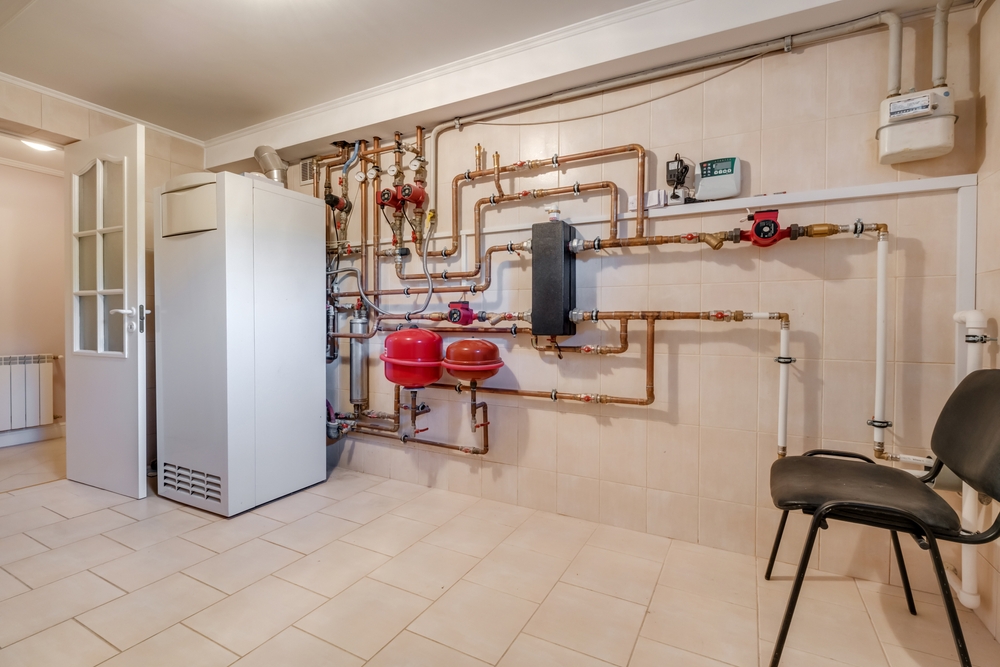
- How it Works: Boilers heat water and distribute the resulting steam or hot water through pipes to radiators or under-floor heating systems.
- Identification: Boilers are usually found in basements and resemble a big metal box with pipes running from it. They often have a water tank nearby.
- Key Indicator: If your home is heated by radiators, or if you have a system of pipes under your floors, you probably have a boiler.
Heat Pump
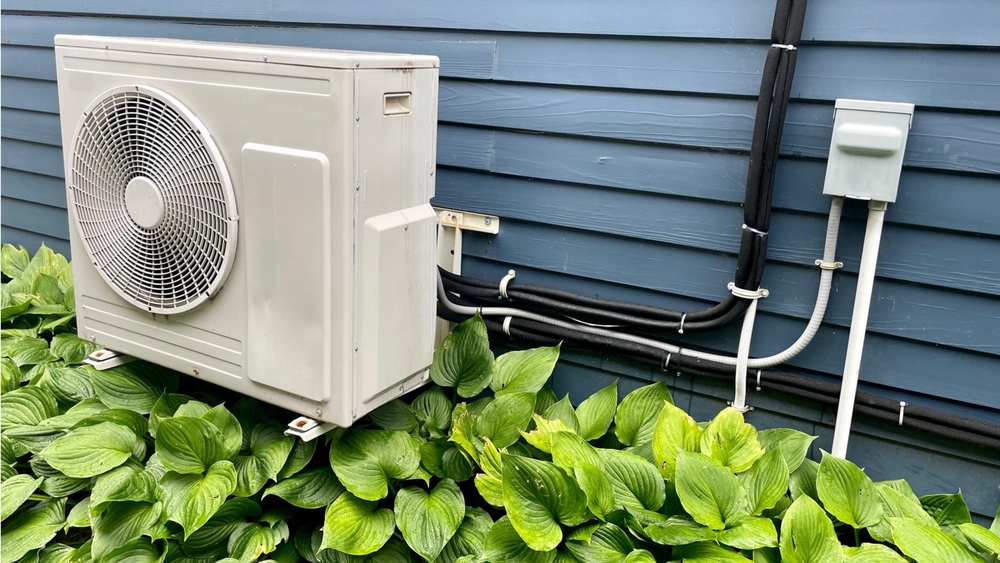
- How it Works: Heat pumps transfer heat from the outside air (even in cold weather) into your home. In the summer, they can reverse this process to cool your home.
- Identification: Look for an outdoor unit that resembles an air conditioning unit, paired with an indoor air handler.
- Key Indicator: If you use the same system for both heating and cooling, it’s likely a heat pump.
Electric Baseboard/Radiator Heat:
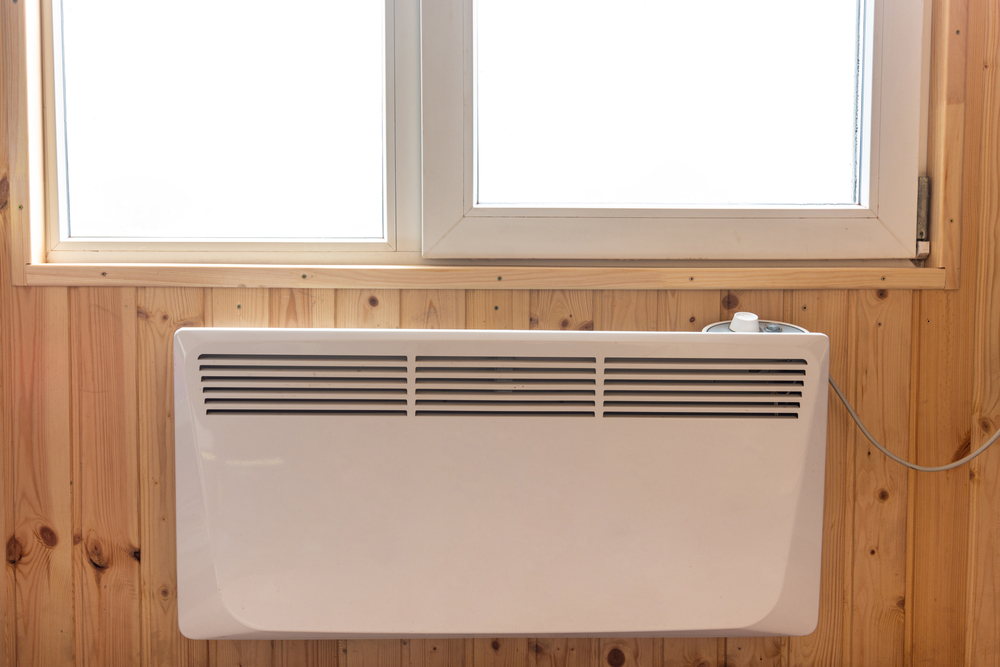
- How it Works: These heaters use electrical resistance to generate heat, which is then radiated into the room.
- Identification: They are usually located along the baseboard of a room’s wall and are long, thin, and metal.
- Key Indicator: If you have individual units in each room with their own controls, these are likely electric baseboard heaters.
Home Heating Maintenance and Upkeep
Simple tasks like replacing filters and clearing vents can significantly improve your heating system’s efficiency. Remember, while regular homeowner maintenance is crucial, some tasks are best left to the professionals, especially when it involves electrical or gas components.
Furnace Maintenance Tips
- Filter Replacement: Change or clean your furnace filter every 1-3 months. A dirty filter restricts airflow, reduces efficiency and puts strain on the furnace.
- Blower Motor and Fan Inspection: Annually inspect the blower motor and fan for dirt and debris. If necessary, clean them to ensure optimal airflow.
- Thermostat Check: Regularly check your thermostat’s accuracy and replace batteries if it’s battery-operated.
- Ductwork Inspection: Look for leaks, blockages, or damage in your ductwork. Sealing leaks and repairing damage can greatly improve efficiency.
- Furnace Inspection: Have an annual furnace inspection and tune up in the fall to make sure your unit is ready for another heating season.
See our video on how to replace your furnace filter for a quick and easy tutorial:
Boiler Maintenance Tips
- Check for Leaks: Regularly inspect for water leaks or corrosion around the boiler and its pipes.
- Pressure Check: Ensure the boiler pressure is within the recommended range per the user manual. Add water if pressure is low.
- Radiator Bleeding: Bleed your radiators annually to remove trapped air and ensure even heat distribution.
- Heat Reflectors: Install metal heat reflectors in between walls and radiators.
- Annual Boiler Inspection: Have a professional inspect and service your boiler annually, particularly before the winter season.
Heat Pump Maintenance Tips
- Clean or Replace Filters: Like furnaces, heat pump filters should be cleaned or replaced regularly.
- Outdoor Unit Maintenance: Keep the area around the outdoor unit clear of debris, leaves, and snow. Clean the coils and fan blades.
- Inspect Refrigerant Lines: Regularly check the refrigerant lines for leaks or damage.
- Thermostat Calibration: Ensure your thermostat is correctly calibrated to work efficiently with your heat pump.
Electric Baseboard Heater Maintenance Tips
- Dust Removal: Regularly vacuum and wipe down the heaters to remove dust and improve efficiency.
- Check for Obstructions: Check that furniture or draperies aren’t blocking the heaters.
- Inspect Wiring: Look for any signs of overheating or damage to the electrical components.
General Maintenance Tips for Energy Efficient Home Heating
- Carbon Monoxide Detectors: Ensure you have functioning carbon monoxide detectors in your home, particularly if you use gas heating.
- Ventilation Check: Make sure all vents and air intakes are not blocked by furniture or debris.
- Open and Close Drapes: Open south-facing drapes or blinds to absorb heat from the sun during the day. Close them at night to keep cold air out.
- Professional Annual Service: Regardless of your heating system type, an annual check-up by a professional can identify potential issues and keep your system running efficiently and safely.
Use a Smart Thermostat
Smart thermostats not only offer convenience but also enhance the efficiency of your home heating system. Here’s how they benefit you and some tips on using them effectively:
Benefits of Smart Thermostats:

- Learning Capabilities: Many smart thermostats can learn your schedule or preferences and automatically adjust the temperature when you’re home, asleep, or away. Don’t waste energy heating an empty house. A reduction of 7-10 degrees for 8 hours a day can save as much as 10% per year on heating.
- Remote Control: With Wi-Fi connectivity, you can control your home’s temperature from your smartphone or tablet, no matter where you are.
- Energy Usage Reports: Some smart thermostats provide detailed reports on your energy usage to help you understand your heating patterns and identify opportunities to save energy.
- Maintenance Alerts: They can also remind you of essential maintenance tasks like changing filters or alert you to potential issues with your heating system.
- Integration with Home Automation: Many smart thermostats can be integrated with other smart home devices for enhanced comfort and efficiency.
Remember, if you’re considering a smart thermostat, choose one that is compatible with your heating system. If you’re unsure, contact a licensed Applewood technician for advice. Smart thermostat installation is a straightforward process that can make a big difference in how you experience and manage your home heating.
Seal and Insulate Your Home
A well-insulated home is your best defense against the Colorado cold. Check for leaks and drafts around windows and doors, and consider adding insulation to key areas like attics and basements. These small fixes can lead to big savings.
Colorado homeowners can schedule a home energy audit with Xcel Energy to identify areas for improvement. The inspection includes:
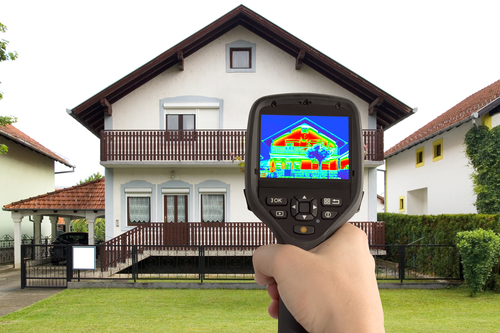
- Thorough inspection of your home’s exterior, including windows and doors
- Insulation assessment
- Examination of the age, efficiency and general condition of your mechanical systems
- Carbon monoxide test
- Basic analysis of your utility bills
Additionally, you can add a door blower to the inspection to see how much air leaks out of your home each hour or an infrared camera view to see thermal levels across your home.
Your Local Heating Experts
Efficient heating in Colorado winters is a blend of smart practices, regular maintenance, and, when possible, investing in modern, energy-efficient upgrades. At Applewood, we’re committed to helping you find the best solutions for your home heating needs.
We’re here when you’re ready to explore efficient heating options for your home or when you need fast repair on your existing system. Contact us today for service or a consultation. Let’s make your Denver home warm and energy efficient this winter!


